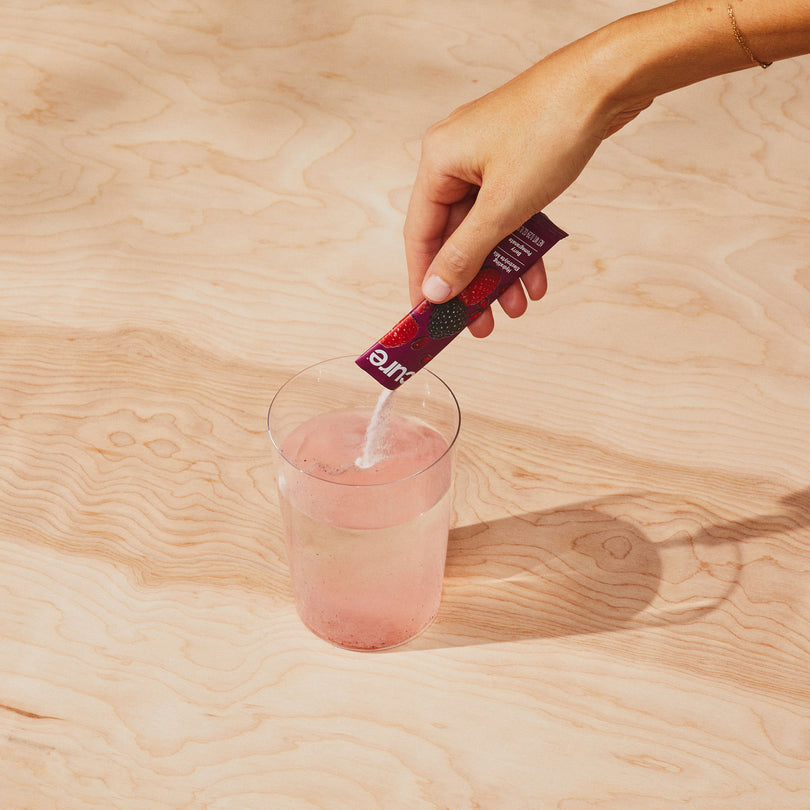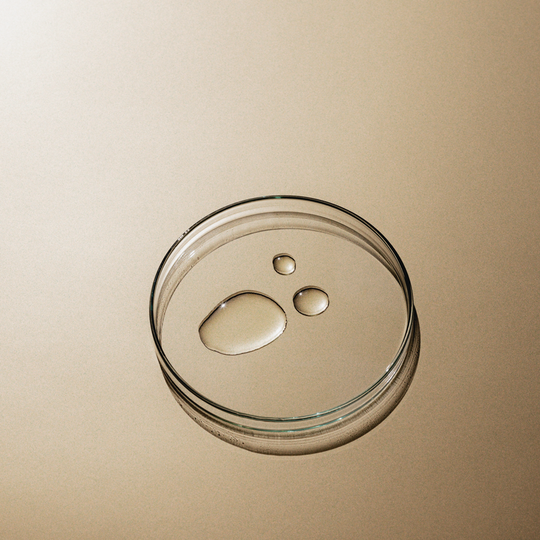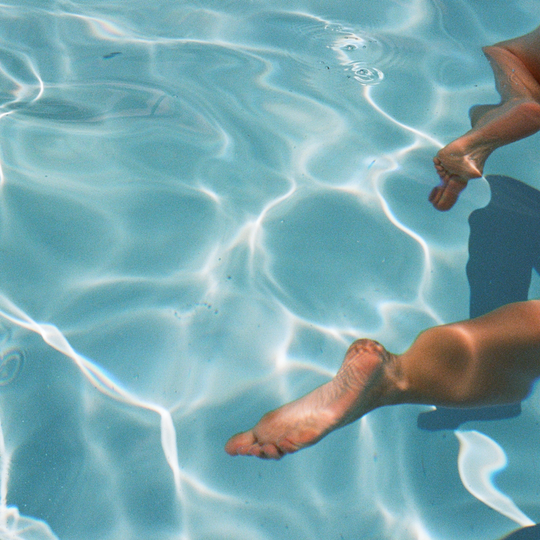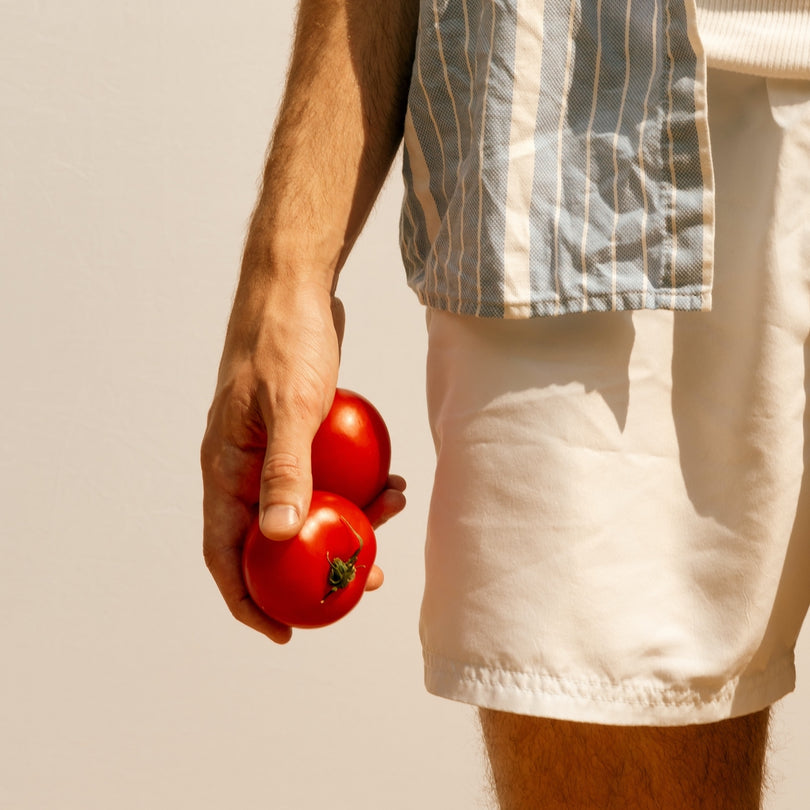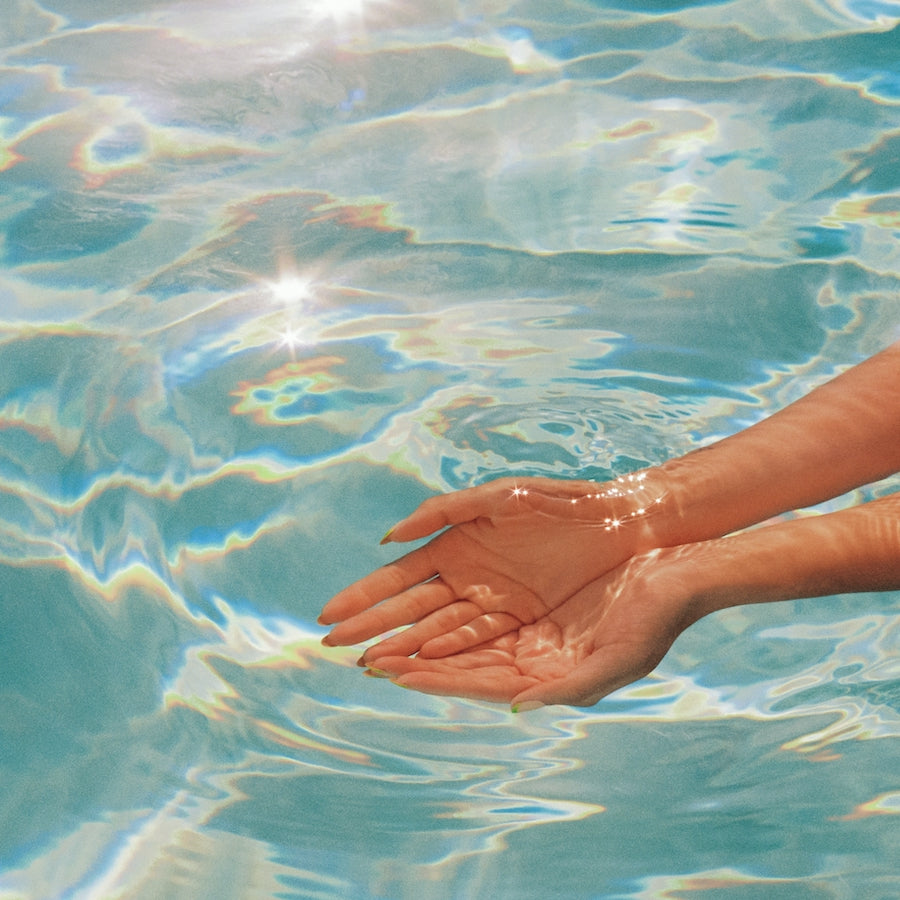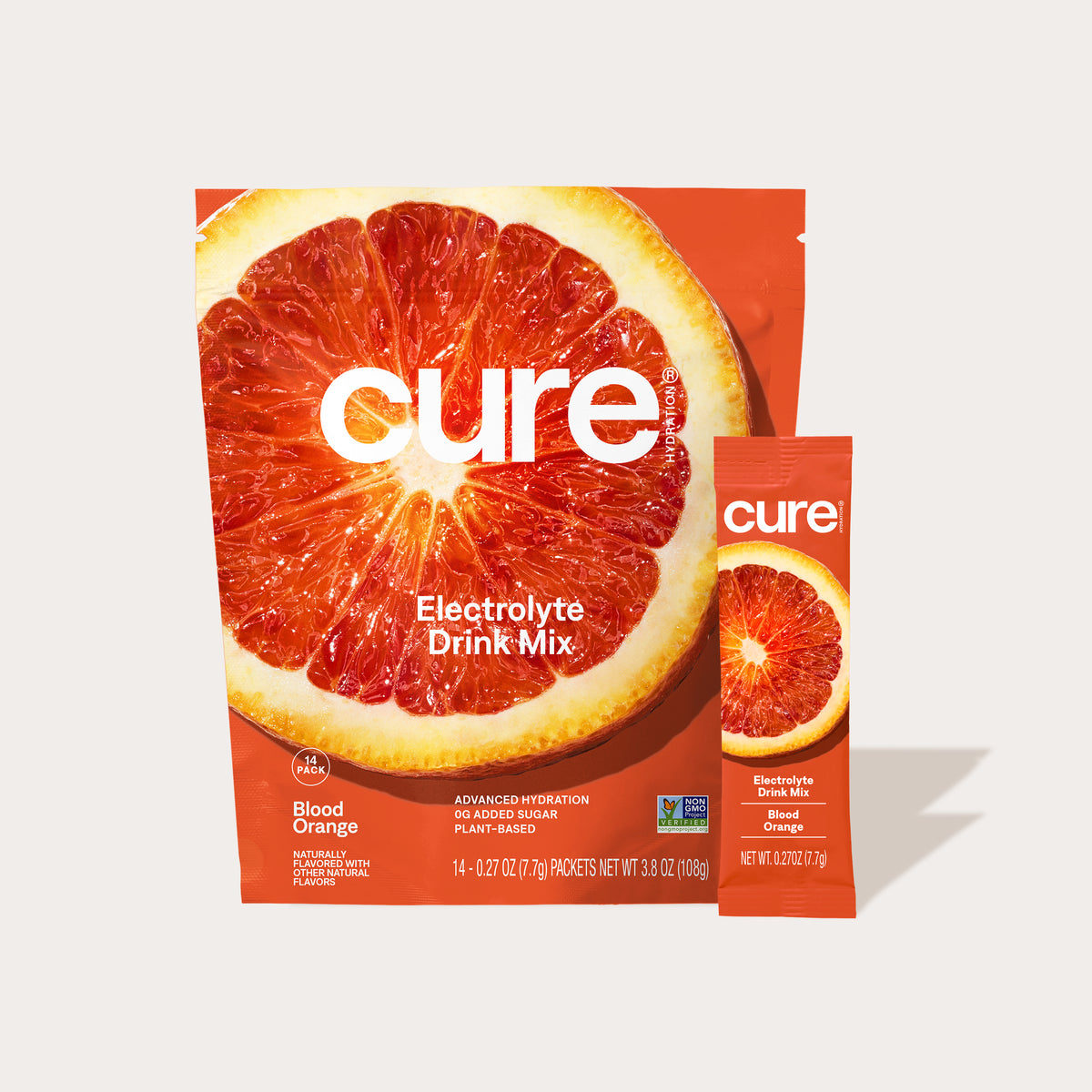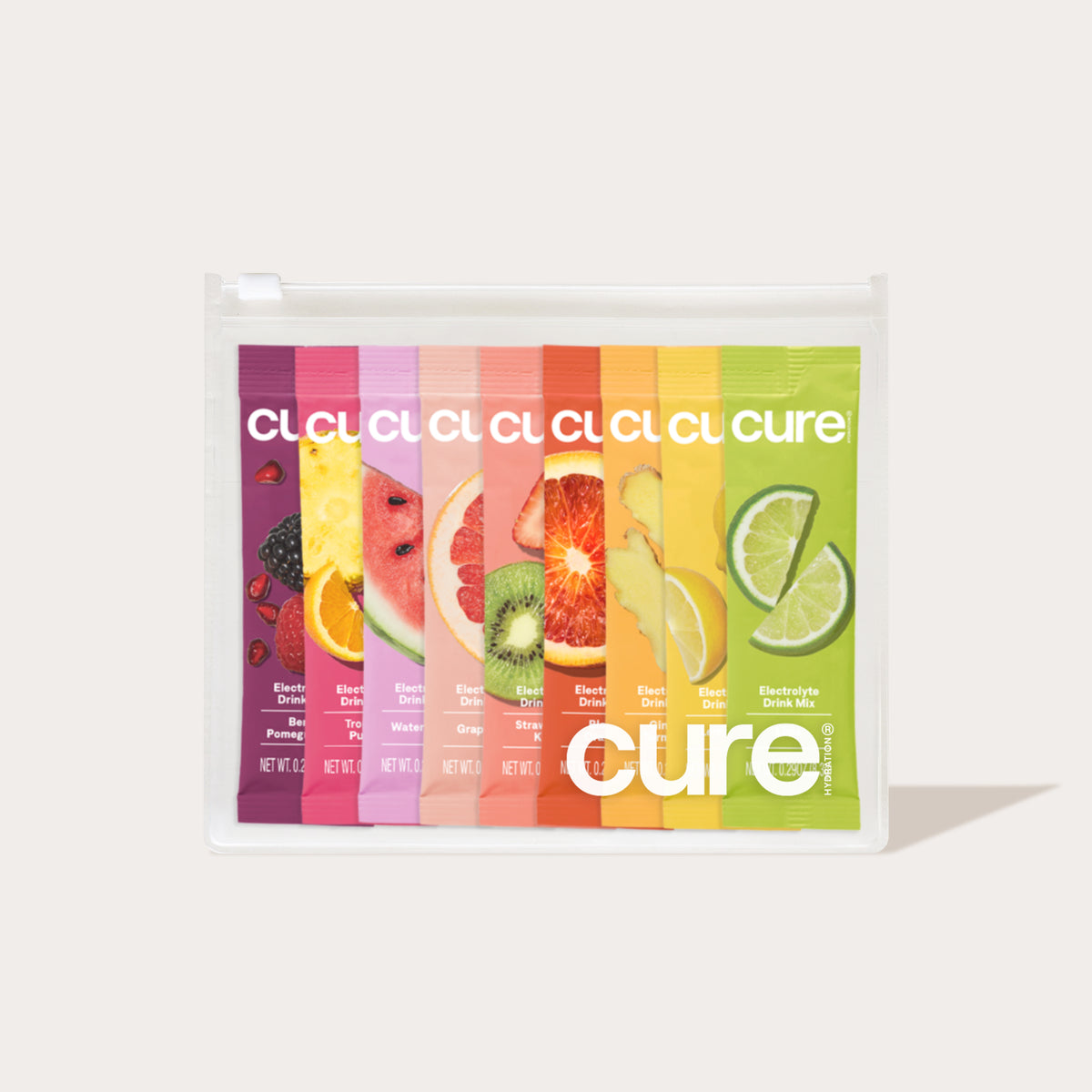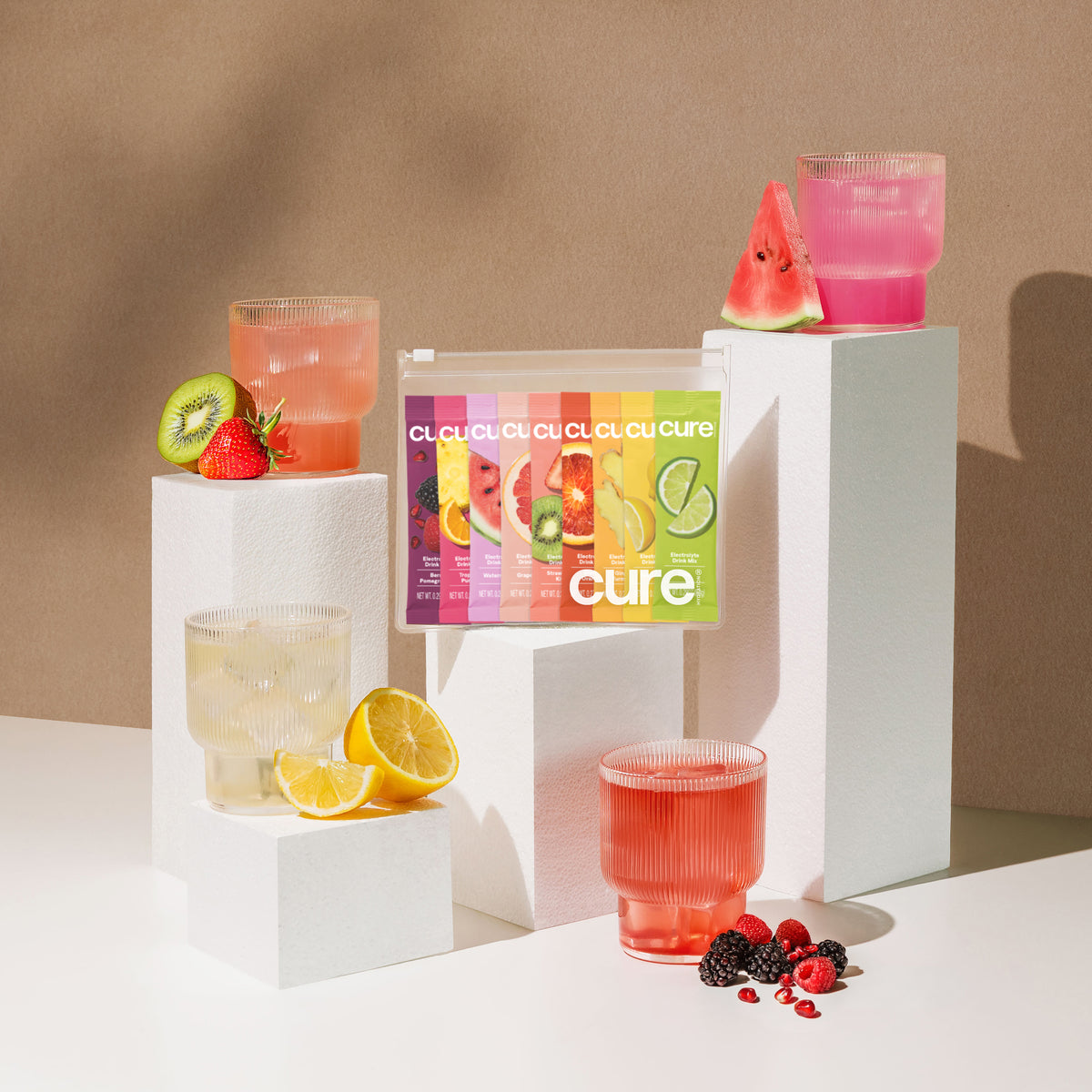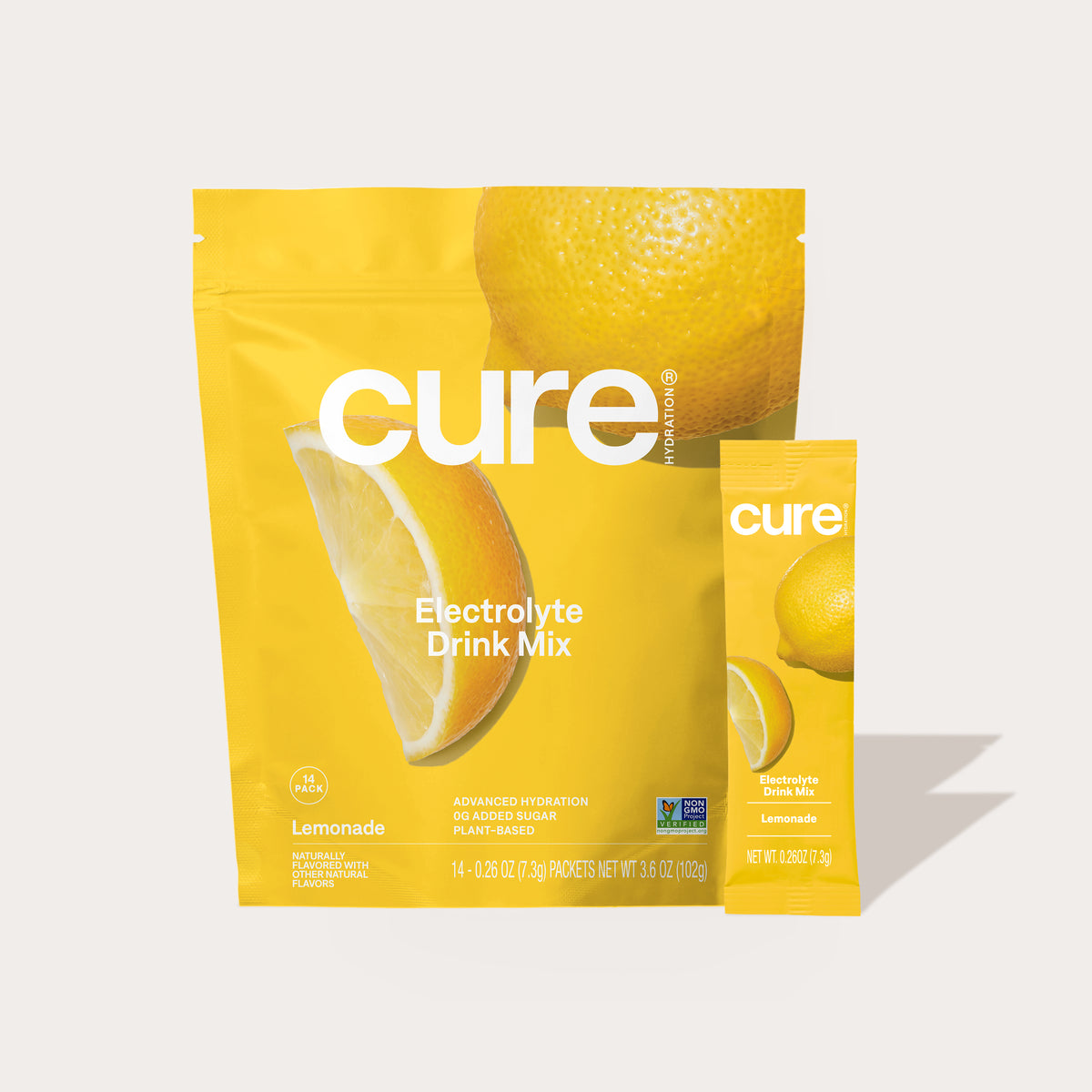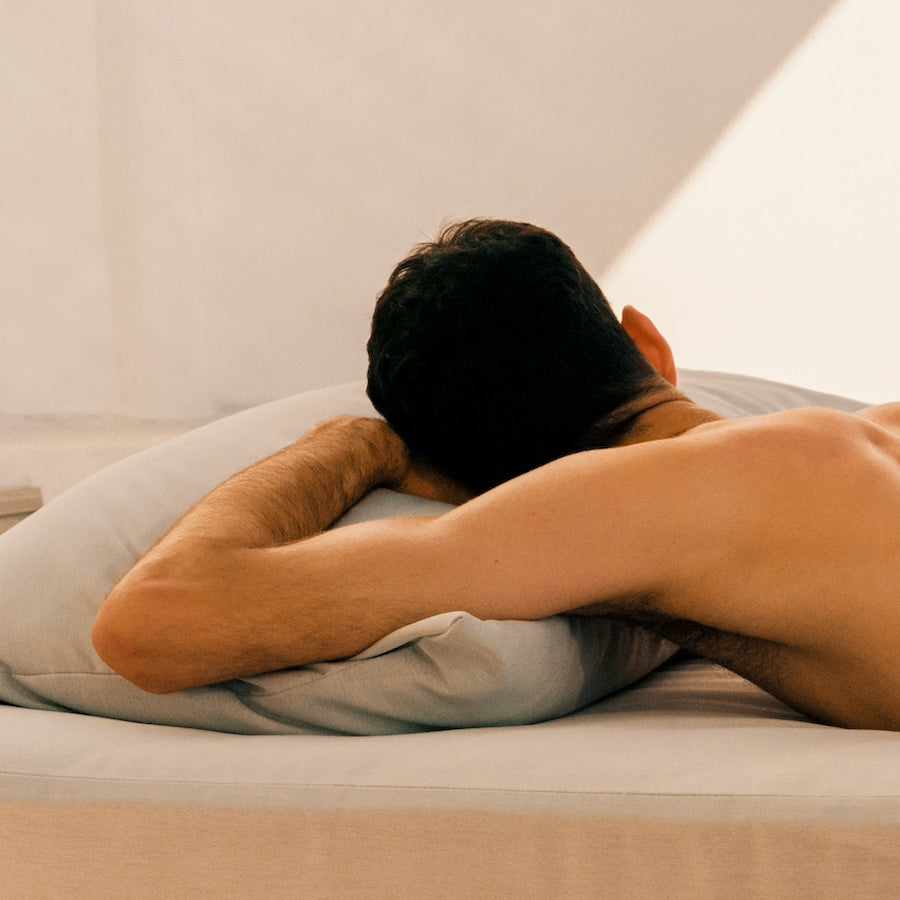In this article:
- What is the Difference Between Lightheadedness, Dizziness, and Vertigo?
- Common Causes of Dehydration
- Signs Of Dehydration
- What Should I Do When I Feel Lightheaded?
- What If Water Alone Isn’t Enough?

It’s not unusual to feel lightheaded every once in a while. There comes a point in time where getting up too fast from a chair or the bed can make you feel like you’re going to faint. Having it happen every once in a while isn’t cause for concern. If it’s frequent, that’s a different story.
Lightheadedness can also lead to injuries or indicate bigger problems in your body. One of those is chronic dehydration. Dehydration can lead to many other problems in the body, and lightheadedness may just be one of several red flags you should pay close attention to when monitoring your health.
What is the Difference Between Lightheadedness, Dizziness, and Vertigo?
|
|
A lot of people think that lightheadedness, dizziness, and vertigo are all the same sensation, but there are some differences between them in how they present and what causes them. So when your doctor asks whether you feel lightheaded or dizzy, you’ll know the difference. LightheadednessIf you feel faint or a little less grounded than usual, you may be experiencing lightheadedness. You can also feel dizzy as well, but lightheadedness alone would not cause the spinning or unbalanced sensation that dizziness and vertigo do. Lightheadedness can happen with dehydration, especially after being exposed to heat for a long period of time. |
Dizziness
Remember when you were a kid and you would spin around in circles? Or maybe when you rode a spinny ride at an amusement park? That sensation of your whole world spinning is classic dizziness. If you ever feel like the room is spinning or you’re tilting without moving, you’re probably dizzy. Dizziness alone isn’t enough to cause alarm, but if you continuously experience it, it may be time to investigate what could be triggering it.
Vertigo
Take dizziness and increase the sensation substantially. That’s vertigo. Caused mostly by inner ear problems, vertigo is unlikely to be caused by not drinking enough water. You know if you have vertigo if you experience any of the following:
- A floating or tilting feeling so intense that you can barely move or work without feeling like you’re falling
- The room seems as if it is spinning or moving at a rapid pace
- Intense nausea
Vertigo normally points to more serious issues such as crystals in the inner ear, inflammation of nerves, or intense migraines. If you are experiencing vertigo, consult an ENT doctor to investigate the cause.
What Causes Dehydration?
Dehydration is caused by a lack of fluids in the body. We lose water from sweating, urinating, and from the body utilizing water for the majority of its major functions. Without proper amounts of water and electrolytes in our diet, our bodies will cry out for help in a lot of ways.
Headaches, nausea, and fatigue are just some of the ways the body signals a need for more water. Even if you do get the recommended amount of water per day, you’ll still need to keep a diet balanced with fruits and vegetables that are full of water and nutrients. Without a balanced diet in combination with the right amount of water, your body can become dehydrated.
And no, drinking four to six cups of just any drink doesn’t count. Sodas and other sugary drinks won’t help you maintain the hydration your body needs. In fact, it could do the opposite. So if you’ve been working outside in the heat or just finished with your afternoon cycling class, skip the temptation of an average cola and opt for water. As for hydrating foods, try eating a salad or applesauce if you need a wider variety from standard fruits and veggies.
Common Causes of Dehydration
- Diarrhea and vomit
- Certain medications
- Alcohol
- Fruit juices with low water content
- Energy beverages
- Large amounts of Caffeine
- Heat stroke
Severe dehydration can even cause extreme complications like urinary and kidney issues due to low levels of sodium and potassium hypovolemic shock.
Signs Of Dehydration
Certain people are at an increased risk of dehydration. Infants, the elderly, athletes, those who are sick and struggle to eat and drink, people who have diabetes and those who spend a lot of time outdoors in hot climates. If you notice any of the following symptoms, you may also be experiencing dehydration.
- Constipation
- Fever
- Thirst
- Muscle cramps
- Dry mouth
- Dark urine
- Lack of sweat

Why Do I Feel Lightheaded When Dehydrated?
One major reason as to why you’d feel lightheaded when dehydrated is because most of your body requires water to function. Depending on your height, weight, and other factors, your body needs anywhere from 50 to 70 percent of its body weight in water.
Water controls everything from blood pressure, digestion, joint functions, your brain’s ability to think, and so many more. Some of the potential causes of lightheadedness may be related to chronic dehydration, such as low blood pressure, and low blood sugar.
What Should I Do When I Feel Lightheaded?
There are a few important steps to take when it comes to lightheadedness. If it comes on suddenly, it could signal an emergency. Consult emergency services immediately if you’ve never experienced the feeling before or it is more severe than usual.
Some of the reasons for lightheadedness can range from mild to severe, so it’s necessary to keep track of your symptoms and other vitals. Some reasons can include the following:
- Low blood pressure
- Low blood sugar
- Allergies
- If you have the cold or the flu
- Anxiety
- Stress
- Hyperventilation
- Heart attack
- Stroke
- Shock
For life-threatening emergencies, call emergency services and wait for their instructions for what to do. But for lightheadedness you can safely assume it is from dehydration or another mild condition, try the following tips.
Do Not Chug the Water
Chugging down a bunch of water at once will not instantly fix your problem. In fact, it could shock the body and make you feel worse than before, especially if you drink very cold water after being in an extremely hot environment.
Sip water steadily giving your body a chance to adjust to the normal levels of water entering the body. Again, if you are feeling lightheaded due to dehydration from being outside in the heat, drink room temperature water and nothing ice cold.
Make Sure You Sit or Lie Down
In order to avoid injuries from stumbling or falling, find a place to sit or lay on while you figure out what might be causing your lightheadedness. The sensation may not go away, but you’ll avoid feeling much worse by dodging potential obstacles and broken or sprained bones.
Meditation and Deep Breathing
If your lightheadedness is caused by stress or anxiety, then take some time to practice mindfulness. If you’re unfamiliar with mindfulness, it is a way of staying in tune with the thoughts in your mind and their relationship with your body.
Stressful thoughts can cause tension in the body, and the more you ignore it, the worse it can get. Close your eyes and focus on the sensations around you, what you can see, smell, touch, and hear. Any irrelevant thoughts should be ignored or told to stay away mentally as you are meditating.
When you are at a good place, focus on your breathing by inhaling for five to seven seconds, holding for the same amount of time, and exhaling for the same amount of time. Repeat as often as necessary for best results.
Get Your Electrolytes Checked
If this is happening constantly, then you may need to get a doctor’s opinion. They may test your electrolyte levels to investigate what may be going on in your body. Even when you get enough water, electrolytes need to be present in the body as well.
An electrolyte panel test is a standard procedure at doctor’s offices, so know that it is a quick and well-practiced process. Your doctor will explain the results to you and tell you what steps to take in order to get your electrolytes back in balance.
What If Water Alone Isn’t Enough?
|
If you’ve been faithfully drinking water every single day and still get dehydrated, it can feel hopeless. You’re doing everything right and yet you don’t see the improvement you expect. This may be because you are missing key electrolytes in your diet that are just as important to your body’s functioning. We know what it’s like to be mindful of your health only to be disappointed by the results. Our CEO and founder experienced unpleasant symptoms of dehydration before discovering that dehydration and an electrolyte imbalance was the cause. As a solid solution to dehydration and electrolyte imbalance without sacrificing premium ingredients and scientifically-proven results, Cure provides top-tier electrolyte drink mixes for hydration and better energy every day. |

Hydrating Electrolyte Mix★★★★★ 1000+ reviews |
Here at Cure, we believe that proper hydration is the foundation of health and an effective way to boost your overall health. With clean ingredients, science-backed products, and water; our hydration products will help empower you to live a healthier life.
We exist to empower others to live better and healthier lives with clean and effective products. We’re always learning to do better every day. We want to promote a healthy space in the world and in the workplace. Most of all, we want to be trustworthy and transparent with our customers, and we live by these promises to you.
Happy, Healthy Hydration with yours truly, Cure.
Sources:
Dizziness | What It Is, Causes & Management | Cleveland Clinic
How much water should you drink? | Harvard Health


